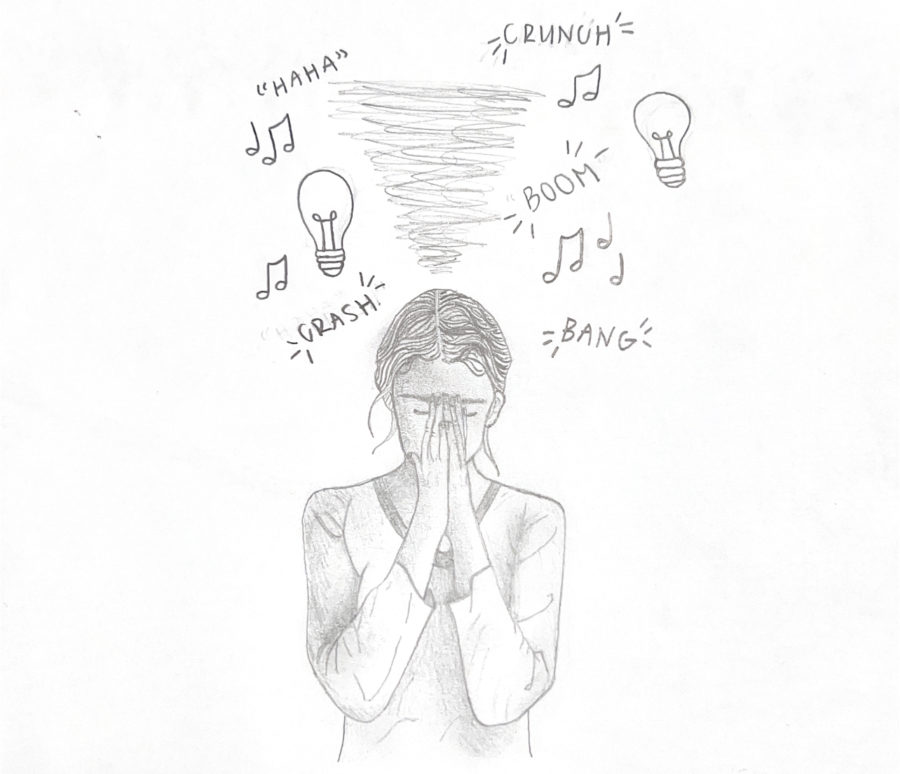Sensing the issues with sensory overload
This sketch represents a girl dealing with sensory overload.
March 20, 2023
Many students experience the effects of sensory overload every day.
Sensory overload, also referred to as overstimulation, happens when the brain takes in more input from the senses than it is able to process.
When the brain competes with other sensory inputs, the brain can get trapped in a cycle of struggling to prioritize what to center on.
“This can be difficult for students [to] deal with because everything is so busy with a lot going on at once. Environments like the ones found in high schools foster an environment for overstimulation,” said junior Maddie Anton.
Anyone can experience sensory overload and feel the effects in different ways.
Some symptoms of overstimulation include extreme irritability, discomfort during everyday activities, anxiety about surroundings, unusual sensitivity to materials touching skin and discomfort towards noises or lights.
“Knowing people who experience sensory overload, I’ve noticed that they tend to try to remove themselves from factors that could cause them to overstimulate,” said Maddie.
The first step in helping with sensory overload is to try and recognize personal triggers, according to Healthline
For many, a loud noise could trigger overstimulation.
Closing eyes, taking deep breaths with minimal movement, and slowly counting to ten, are helpful ways to reduce this.
This can act as a reset for the brain and reduce some overwhelming feelings that overstimulation brings.
There are resources at the school that can also be beneficial in helping find coping strategies for overstimulation.
“[Counselors] can be a good resource for this. We can sit down with students and find coping strategies that can be beneficial to them in the future,” said guidance counselor Bryan Everett.
Everyone manages their sensory overload differently. In order to feel positive results, find what works personally to help the brain relax. Activities that can also help include listening to music, reading a book, drawing, taking a walk or doing yoga.
“When it comes to sensory overloads, I feel like eliminating distractions and trying to refocus your attention on one thing could help you,” said junior Lauren Sheppard.


